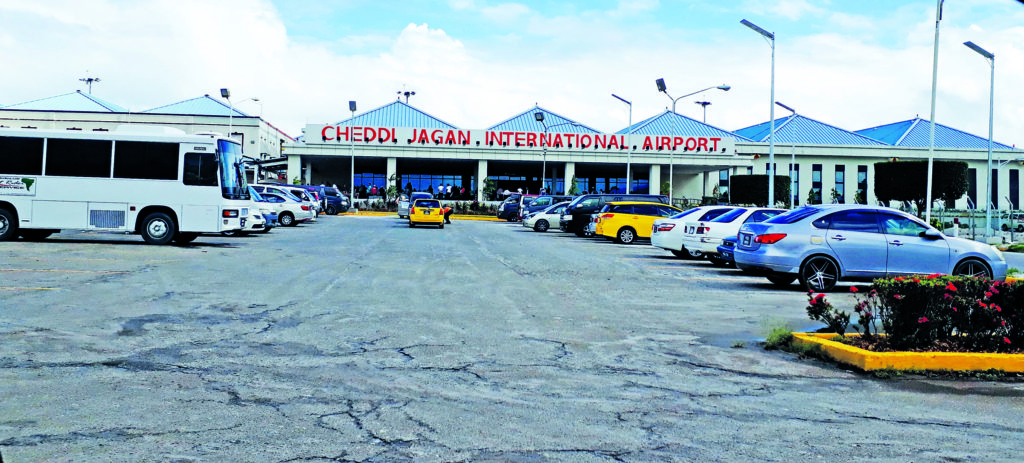Home Top Stories Health Minister announces protocols ahead of airports’ reopening
On Monday, Guyana’s two main ports of entry– the Eugene F Correia and Cheddi Jagan International Airports will be reopened to commercial flights.
In light of this move, the Health Minister, Dr Frank Anthony announced the measures that will be implemented as the main airports prepare to facilitate international flights on October 12.
An important aspect of allowing incoming passengers is a negative PCR test, which must be proven by persons entering the country. This type of test is separated into two categories and can be done either with 72 hours or seven days of the flight. 
“Before you can even get that flight, you have to go to the lab at the place of origin, get a PCR test done. That test has to be submitted to the authorities here in Guyana. We will then validate the test that it’s an actual PCR test and we will pass an instruction on to the airline so that they can book the flight,” the Minister informed.
With regards to the seven-day window, travellers will be asked to pay for a second test at the airport. If someone tests positive during their second PCR test, they will be picked up by the Health Ministry’s specialised COVID-19 team.
“If your test is beyond 72 hours, then what would happen is that when you arrive in Guyana, you will go through the protocols and you’ll be required to do a second test here in Guyana at the airport. You’ll have to remain at the airport until you get back the results. The passenger will have to pay for that and those arrangements are being worked out.”
In addition, upon boarding an aircraft, the necessary guidelines are to be followed with regards to protective gears. Screening will be done at the airport through temperature checks, electronic recording of data among other measures. In addition, upon boarding an aircraft, the necessary guidelines are to be followed with regards to protective gears.
Dr Anthony insisted, “When you board the plane, you are required to travel with a mask on so that just perchance someone is infected, you’re protected within this enclosed space. When you arrive in Guyana, we have persons who are at port health and those are Ministry of Health staff. They would screen you.”
Port health officers are responsible for interviewing incoming passengers, specifically to record their medical data and existing condition. This process will not be long. The Minister said it is expected that passengers will be negative but nevertheless, all measures have been put in place to cater for a positive detection.
“We have designed an electronic system so once you come in, they would already have the name of the passenger and a number of details…We’re expecting that the majority of people will be negative so this is just putting all the measures in place in case we have a positive.”
Given the closure of airports since March, special permission had to be granted by local authorities over the past months for special repatriation flights. Initially, only departure flights were being allowed, to take foreign nationals who were stranded in Guyana back home. However, in recent months, relief flights were operated to bring home thousands of Guyanese who were left stranded in various countries overseas amidst the COVID-19 pandemic, and thousands of Guyanese, including students, have since returned from New York, Miami, Cuba, Trinidad and Tobago, Barbados, Canada, St Maarten, Jamaica, Suriname, Grenada and Curacao.
Since taking office in August, the People’s Progressive Party/Civic (PPP/C) has increased the number repatriation flights, and has even created a schedule of flights to be operated by Eastern Airlines from Guyana to New York and Miami.
In order to be able to travel to Guyana, travellers must complete the electronic repatriation form available on the Guyana Civil Aviation Authority (GCAA) website. Additionally, a molecular biological PCR test for COVID-19 must be completed, and the negative result sent to the relevant authorities.
The GCAA has also implemented a series of safety measures and guidelines for persons entering and leaving the country.
However, with the country’s main port of entry closed for several months, the CJIA has taken a hit – losing approximately $200 million every month since the closure in mid-March.
Last month, Chief Executive Officer of the CJIA, Ramesh Ghir confirmed that the CJIA Corporation lost just over $1 billion in revenues thus far this year. (G12)
